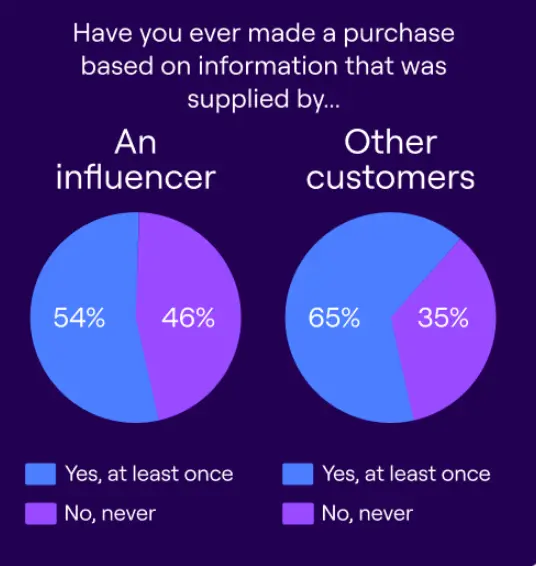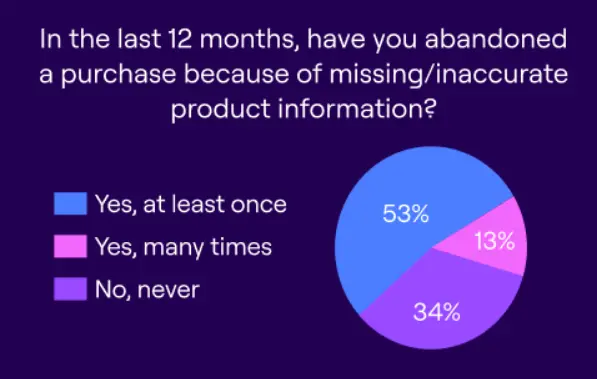- User reviews now outweigh influencer endorsements in credibility.
- Two-thirds of consumers abandon purchases due to poor product information.
- Personalization drives loyalty, but AI must be transparent to build trust.
- Values-based commerce is rising, with sustainability linked to willingness to pay more.
- Omnichannel accuracy and seamless experiences are baseline expectations.
A new Akeneo survey reveals that peer reviews, not influencers, are shaping trust and loyalty in the global retail landscape
The modern consumer journey has grown increasingly complex. Shoppers now interact with an average of six touchpoints before purchasing, blending digital and in-store channels with expectations for accuracy, personalization, and authenticity.
A new global B2C survey from Akeneo, which surveyed 1,800 consumers across eight countries, reveals one of the most striking insights: customers trust each other’s voices more than influencers or experts. This shift has significant implications for how brands approach credibility, loyalty, and marketing strategies in 2025 and beyond.
The Trust Hierarchy: Reviews Outweigh Influencers
Akeneo’s research underscores a major development in the global retail landscape: user reviews now sit at the top of the trust hierarchy. Two-thirds of consumers globally reported buying products based on peer feedback. While more than half also acknowledged making purchases influenced by influencer recommendations, the weight of credibility skews toward fellow shoppers.
This finding doesn’t negate the role of influencers — particularly in beauty, fashion, wellness, and sports categories, where they remain highly persuasive — but it signals that authentic, unfiltered peer-to-peer content has become the gold standard of credibility. Consumers increasingly want evidence that someone like them has used the product and found value.
For marketers, this recalibrates the role of social proof. Influencer activations may drive awareness, but reviews and customer-generated content are now the cornerstone of conversion.
Accuracy as the Bedrock of Commerce
Trust does not end with reviews; it begins with accurate information. The report shows that two-thirds of consumers abandoned a purchase in the past year due to missing or incorrect product details. This finding highlights how product information management (PIM) is no longer just an operational task — it is a revenue driver.
Even more compelling, nearly half of global shoppers said they would pay a premium — an average of 25% more per product — if retailers provided complete and reliable product content. That willingness to pay illustrates a growing linkage between data quality and perceived brand value. Incomplete content not only weakens sales but damages credibility long-term.
Personalization and the Role of AI
Personalized shopping is emerging as another trust-builder. Two in five consumers would pay extra for experiences tailored to their preferences, with many citing stronger loyalty to brands that deliver relevance at every touchpoint.
Artificial intelligence sits at the heart of this trend. Tools like AI-powered assistants and recommendation engines are helping shoppers cut through noise and make confident choices. Yet the report also highlights a delicate tension: while consumers embrace personalization, they remain wary of opaque AI use. Concerns about privacy, misuse, and impersonality persist, making transparency in AI deployment critical to long-term trust.
Values Matter: Sustainability and Transparency
Another key dimension in the modern shopper’s mindset is the alignment of brand values with consumer values. The survey found that 42% of consumers would spend more if brands clearly communicated their sustainability efforts, supply chain practices, or ethical standards. This group was willing to pay an average of 24% more for such assurance.
Yet the report also shows that product content often fails to convey these values adequately. The takeaway for brands is clear: sustainability, transparency, and values communication must move from peripheral messaging into the core of product storytelling.
Omnichannel as the Default
Consumers no longer think in terms of “online” versus “offline.” They expect seamless integration. Akeneo’s findings show that nearly three-quarters of shoppers use multiple channels throughout their journey, with physical retail stores and digital marketplaces often overlapping.
The implications are substantial: shoppers want consistent, high-quality product information whether browsing in-store, on a brand site, or on a marketplace. Add to this the expectation of free returns, fast delivery, and easy processes, and the baseline for acceptable customer experience has risen dramatically.
For brands, omnichannel accuracy is not an advantage — it’s a requirement.
Implications for Marketers and Brands
The report offers a roadmap for brands navigating the modern retail landscape:
- Re-center credibility on reviews. Peer feedback carries the strongest influence on purchase decisions and should be amplified in digital experiences.
- Balance influencer campaigns with authentic voices. Influencers remain valuable for discovery, but customer reviews and UGC anchor trust.
- Invest in product information management. High-quality, consistent product content can directly improve sales and reduce costly returns.
- Be transparent with AI. Personalization wins loyalty, but only when consumers understand how their data is being used.
- Showcase brand values. Sustainability and ethics are no longer optional narratives; they are purchase drivers.
- Deliver seamless omnichannel journeys. Trust and loyalty depend on consistency across every touchpoint.
Together, these findings reinforce a new reality: trust is fragmented, but it is also more measurable than ever. Brands that combine peer validation with accuracy, personalization, and values-driven transparency will be best positioned to win customer loyalty in 2025.
The Future of Trust in B2C
The Akeneo B2C survey paints a clear picture of an empowered, values-driven, and digitally fluent shopper. The standout lesson is that customers are more likely to trust each other than influencers — and that trust extends across every element of the purchase journey, from accurate product data to consistent omnichannel experiences.
For brands, the challenge is not only to meet these expectations but to integrate them into a cohesive strategy that sustains loyalty in an increasingly crowded market.




